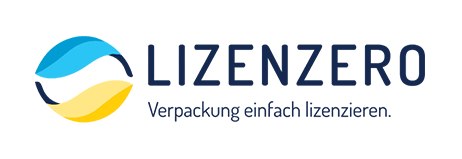In the course of the VerpackG amendment, marketplaces will have to check all traders who sell through them to Germany with regard to compliance with the VerpackG requirements from July 2022. eBay has brought Lizenzero on board as a solution partner in this process.
Requirements of the Packaging Act Amendment for Marketplaces
Requirements of the Packaging Act Amendment for Marketplaces
Similar to what happened in Germany in 2021 with the amendment of the Packaging Act (VerpackG), packaging legislation was also comprehensively tackled in our neighbouring country Austria. For this purpose, both the Austrian Waste Management Act (AWG-Novelle Kreislaufwirtschaftspaket, adopted on 10.12.2021) and the Austrian Packaging Ordinance (VerpackVO Novelle 2021, adopted on 29.12.2021) were revised. Some of the numerous amendments specifically address foreign online retailers who ship their products to Austria.
Amazon and other marketplaces are currently informing all their sellers who send goods to Germany about new obligations in 2022 and requiring them to submit their so-called "EPR number(s)". From 2022, the EPR registration number(s) will be required as proof of compliance with the legislation applicable in Germany for placing packaging, electrical equipment and batteries on the market, as a basic prerequisite for a trader to be able to sell to Germany via online marketplaces such as Amazon & Co. Incidentally, the same applies to France. What exactly needs to be done is explained step by step in our article.
We have news for you! From January 2022, Lizenzero will be operated by the newly founded Interseroh+ GmbH, which will take the place of the INTERSEROH Dienstleistungs GmbH. The new dual system is committed to an innovative concept that enables major partners from trade and manufacturing to become an integral part of the solution for efficient recycling cycles. Under the guiding principle of a "recycling alliance", we thus want to come a few steps closer to protecting the climate and resources.
With the amendment of the German Packaging Act coming into effect on 3 July 2021, a number of things have changed for merchants and producers. Online trade in particular is affected by the new requirements. But the amendment also brings changes for distributors of transport packaging that must be considered. In the following article we inform you in detail about the changes.
Every year, rivers, wind and rain wash several million tonnes of carelessly disposed plastic waste into the oceans. Finely ground into micro plastics, it remains undecomposed in the environment. The result: marine life, which is essential for the balance of our ecosystem, dies or starves to death, and through fish and seafood, the plastic also enters the human food chain affecting our health.
The German Packaging Act (VerpackG) entered into force in January 2019. Since that date, some 200,000 companies have now registered their details in the official LUCID database. Yet many businesses are still not fulfilling their duties when it comes to product responsibility. To address this problem, the Federal Environment Ministry proposed an amendment to the Act in autumn 2020.
With the Packaging Act (VerpackG), the German federal government passed a new law on January 1st, 2019 that regulates the disposal and recycling of packaging waste. For retailers in Great Britain who do business with German customers and send goods to Germany, some obligations have to be fulfilled. What do companies have to consider under the German Packaging Act in the UK? We have put together the most important information for you.
Retailers on the Amazon marketplace can choose to ship the goods they sell to customers on their own – or use FBA. FBA stands for Fulfilment by Amazon (or officially: Fulfilled by Amazon). This means that the marketplace retailer makes its products available to the major retailer Amazon. In the event of a sale, the mail-order giant ships the items – usually with the benefits of Amazon Prime service that are popular with customers. Of course, the additional service creates some Amazon FBA Costs for the marketplace participant. How expensive is shipping through Amazon? We summarized all the important information for you.
All kinds of goods are sold on the Internet by numerous small, large and international online stores. Customers can purchase all products imaginable and have them convenient-ly shipped to their homes. Among the most popular goods are items of clothing, often including sustainable clothing.
Just as big companies, small stores and solo self-employed people have to take a few things into account to ensure that the shipping of goods is also resource-friendly – there is a need for action, particularly with regard to the German Packaging Act (VerpackG) for small businesses. We have compiled the most important information for you.
Just as big companies, small stores and solo self-employed people have to take a few things into account to ensure that the shipping of goods is also resource-friendly – there is a need for action, particularly with regard to the German Packaging Act (VerpackG) for small businesses. We have compiled the most important information for you.
Since 2019, the German Packaging Act (VerpackG) obliges all initial distributors of sales packaging (product, service and shipping packaging) to comply with three obligations. These must take place at two different points: at a dual system of choice and in the LUCID reporting register, provided by the Central Agency Packaging Register (ZSVR).
Especially at Christmas time it becomes clear why packaging waste in Germany is increasing yearly. This year the trend is additionally strengthened by the current COVID restrictions: Consumers buy more and more products up to their front door. But this is not only a problem in Germany: The increasing waste is also becoming visible in other EU countries – and at the expense of the environment.











